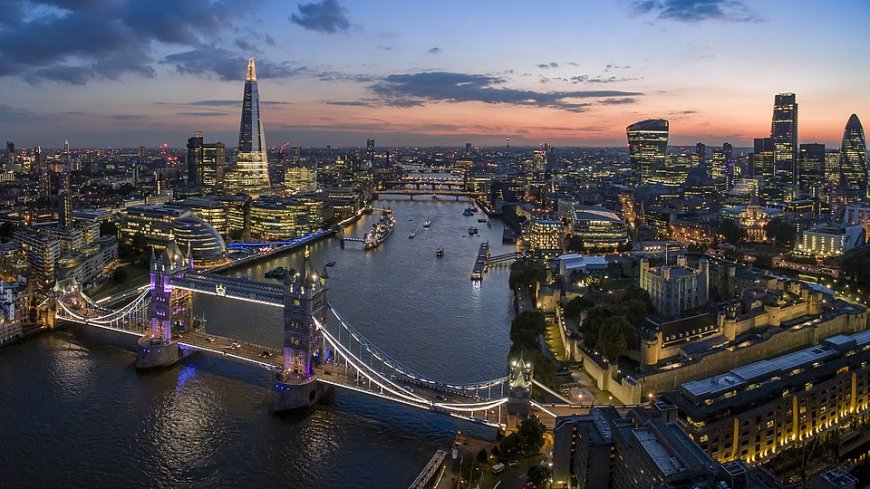How UK's Tougher Rules Affect You Planning To Work, Live & Study
Prime Minister Keir Starmer's administration has introduced a series of reforms affecting foreign workers, international students, and asylum seekers.

The United Kingdom (UK) is undergoing a significant shift in its immigration policies, aiming to tighten controls and reduce net migration. Simply put, the rules target foreign employees, international students, migrants settling long-term, and individuals applying for asylum in the UK.
Prime Minister Keir Starmer's administration has introduced a series of reforms affecting foreign workers, international students, and asylum seekers. These changes reflect a broader strategy to prioritise domestic labour and address public concerns over immigration levels.
Starmer on Monday, May 12, stated that his immigration overhaul is "a strategy absolutely essential to my plan for change, that will finally take back control of our borders, and close the book on a squalid chapter for our politics, our economy, and our country".
Picking up the Brexit-era "take back control" slogan, the PM stated that "everyone knows what it meant on immigration" - but criticised the previous government for doing "the complete opposite" of what it meant.

UK Prime Minister Sir Keir Starmer speaking during a past address. /FINANCIAL TIMES
"Between 2019 and 2023, even as they were going round our country telling people with a straight face that they would get immigration down, net migration quadrupled," Starmer mentioned.
Foreign Workers: Stricter Entry and Employment Conditions
The UK government, for starters, has implemented measures to reduce reliance on foreign labour. The Shortage Occupation List has been replaced by the Immigration Salary List (ISL), which sets higher salary thresholds for visa eligibility.
For instance, the minimum salary for Skilled Worker visas increased from £26,200 (Ksh4,450,599) to £38,700 (Ksh6,573,976) per annum in April 2024.
Additionally, the Immigration Skills Charge paid by employers hiring overseas workers has risen by 32 per cent. These financial barriers are designed to encourage employers to invest in local talent.
In the healthcare sector, new regulations prohibit care workers from bringing dependents to the UK. Care homes must now be regulated by the Care Quality Commission to sponsor foreign workers.
International Students: Tighter Restrictions and Financial Requirements
International students face new challenges under the revised immigration rules. From January 2024, most students are no longer permitted to bring dependents unless enrolled in a PhD or research-based programs.
Financial requirements have also increased. Starting January 2025, students must demonstrate higher maintenance funds: £1,483 (Ksh251,917) per month for those studying in London and £1,136 (Ksh192,972) for those outside London.
The post-study work period under the Graduate Route has been reduced from two years to 18 months. A six per cent levy on international student income is also being considered.
Citizenship and Residency: Extended Timelines and Contribution-Based Assessments
The path to UK citizenship has become more stringent. The residency requirement has doubled from five to 10 years. However, individuals who contribute significantly to society or the economy may be eligible for earlier applications.
The government emphasises a contributions-based model, favouring applicants who consistently pay taxes, work in public services or high-skilled jobs, and engage in community volunteering.
Asylum Seekers: Streamlined Processes and Legal Limitations
The UK has introduced measures to expedite the deportation of foreign criminals and limit the use of human rights laws to avoid deportation. Legislation is being prepared to restrict asylum seekers' use of Article 8 of the European Convention on Human Rights.
The Illegal Migration Act 2023 further strengthens the government's stance by preventing individuals who arrive illegally from claiming asylum or benefiting from modern slavery protections.
Financial Implications: Increased Costs for Migrants
The Immigration Health Surcharge (IHS) has seen a significant increase. As of February 2024, the IHS rose from £624 (Ksh105,999) to £1,035 (Ksh175,815) per year for most applicants. Students and children, however, benefit from a reduced rate of £776 (Ksh131,819) annually.
These increased costs, along with higher visa fees and maintenance requirements, place additional financial burdens on migrants.
The UK's recent immigration reforms signify a decisive move towards stricter controls and reduced net migration. By raising financial thresholds, limiting dependents, and tightening legal avenues for asylum, the government aims to prioritise domestic labour and address public concerns.
These changes reflect a broader strategy to reshape the UK's immigration landscape, emphasising economic contribution and societal integration.







